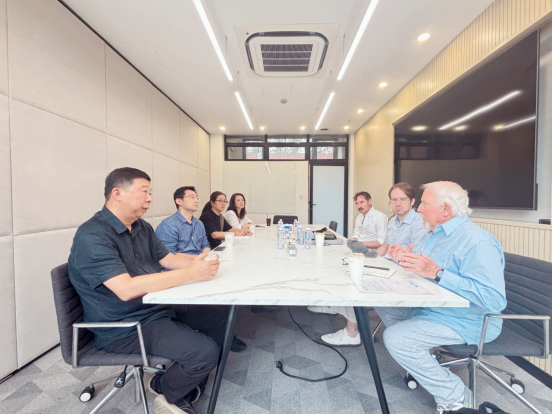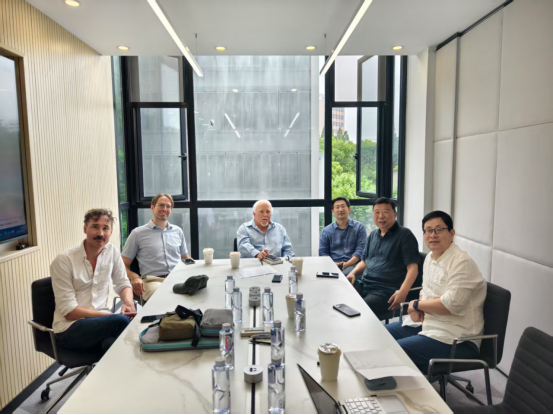
On June 11, 2025, a delegation from the University of Hawaii at Mānoa, led by Global Track program key personnel Clark Llewellyn, Lance Walters, and Ben Parker, visited the College of Architecture and Urban Planning (CAUP) at Tongji University. The two sides reviewed the collaborative achievements of their master's and doctoral dual-degree program, discussed current international education trends and their impact on the program, and proposed future development strategies.

Since the program's launch in 2011, it has successfully cultivated a group of globally-minded professionals, with many research outputs earning international acclaim. Through a dual-advisor system and curriculum co-construction, the program aligns with NAAB standards, integrating academic resources from both China and the U.S. The two sides discussed publishing a 15-year retrospective book to commemorate their partnership.
Addressing evolving international education trends and disciplinary needs, they agreed to establish a curriculum articulation mechanism for planning and landscape architecture, broadening collaborative disciplines. Professor Clark Llewellyn highlighted the complementary strengths of Tongji's sustainable design expertise and the University of Hawaii's tropical ecology research, adding new academic dimensions to the program.
Newly appointed Associate Professor Ben Parker. Ben Parker, AIA, is a licensed architect and associate professor of comprehensive design at the University of Hawai'i at Manoa. At Harvard University, he earned a Master of Architecture in Urban Design with distinction and received the award for academic excellence in urban design. At the University of Texas at Austin, he earned bachelor degrees in Architecture and Asian Cultures and Languages and was awarded the Henry Adams certificate. He has over a decade of experience at leading firms and institutions in the United States, and his award-winning design research focuses on cultural heritage, sustainable urban development, and the impact to the built environment of new technologies like self-driving vehicles and AI.
The two sides proposed expanding collaboration to include joint research, student exchanges, and international workshops, aiming to build an integrated online + offline teaching platform and optimize the training program via a transnational academic committee. This will cultivate innovative talents to tackle global urban development challenges.

Professor Huang Yiru concluded, Since 2011, our program has thrived on mutual empowerment. This exchange will further strengthen academic dialogues between Tongji and the University of Hawaii in sustainable urban development, providing a broader platform for nurturing global industry leaders.
This pragmatic exchange laid a solid foundation for deepening academic cooperation in architecture, planning, and landscape architecture between China and the U.S.
 ABOUT US
ABOUT US




